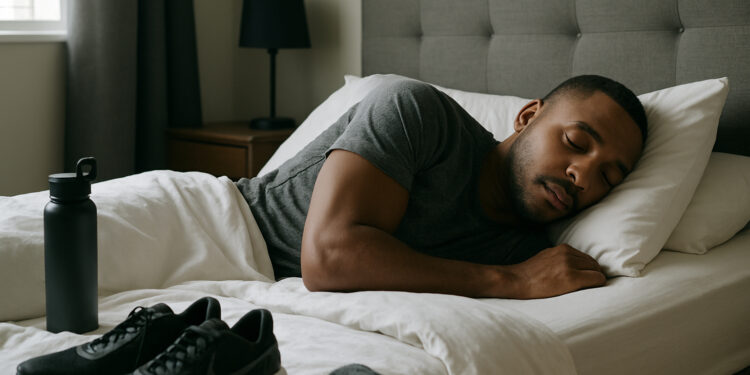Athletes often focus on training, nutrition, and recovery — but sleep is just as essential for reaching peak performance. In recent years, sports scientists and trainers across the U.S. have emphasized that quality sleep is not a luxury but a critical component of physical and mental performance. Whether you’re a professional athlete or a weekend runner, understanding the science of sleep can dramatically enhance endurance, reaction time, and overall fitness.
Why Sleep Matters for Athletes
Sleep is when the body repairs and rebuilds itself. During deep sleep, growth hormone levels rise, helping muscles recover from strenuous workouts. This is also the period when tissues repair, energy stores replenish, and immune function strengthens. Lack of adequate sleep — typically less than 7–9 hours for adults — can lead to slower reaction times, poor coordination, and decreased accuracy, all of which can affect athletic results.
The Link Between Sleep and Performance
Studies show that athletes who consistently get quality sleep experience improved speed, accuracy, and endurance. For example, basketball players who increased their nightly sleep to 9–10 hours showed enhanced shooting accuracy and sprint times. Similarly, endurance athletes like cyclists and runners have reported better stamina and reduced fatigue with proper rest. Sleep also sharpens mental focus — crucial for decision-making in competitive sports.
The Effects of Sleep Deprivation
Chronic sleep deprivation can hinder physical performance as much as overtraining. It reduces muscle glycogen storage, disrupts hormone balance, and impairs recovery time. Athletes who sleep less are also at higher risk of injury due to slower reflexes and poor muscle coordination. Mentally, lack of rest increases stress and anxiety, affecting motivation and concentration. Even a single night of poor sleep can negatively impact performance the next day.
Building Better Sleep Habits
Optimizing sleep should be part of every athlete’s training plan. Maintain a consistent bedtime, even on weekends, and create a dark, cool environment free of screens. Avoid caffeine or heavy meals close to bedtime, as they can interfere with deep sleep cycles. Many U.S. sports teams now integrate sleep tracking technology — like wearables and smart rings — to monitor recovery and ensure athletes are getting sufficient rest.
Napping for Recovery
Short naps of 20–30 minutes can help athletes recover between training sessions, especially when full nighttime rest isn’t possible. Strategic napping improves alertness and reduces fatigue without disrupting nighttime sleep patterns. It’s a simple but effective method used by elite performers in sports like football, track, and swimming.
Conclusion
Sleep is the ultimate performance enhancer — natural, free, and powerful. Prioritizing rest allows athletes to recover faster, think sharper, and perform at their best. In a world obsessed with training intensity, recognizing the importance of sleep might be the smartest strategy for achieving lasting athletic success.


